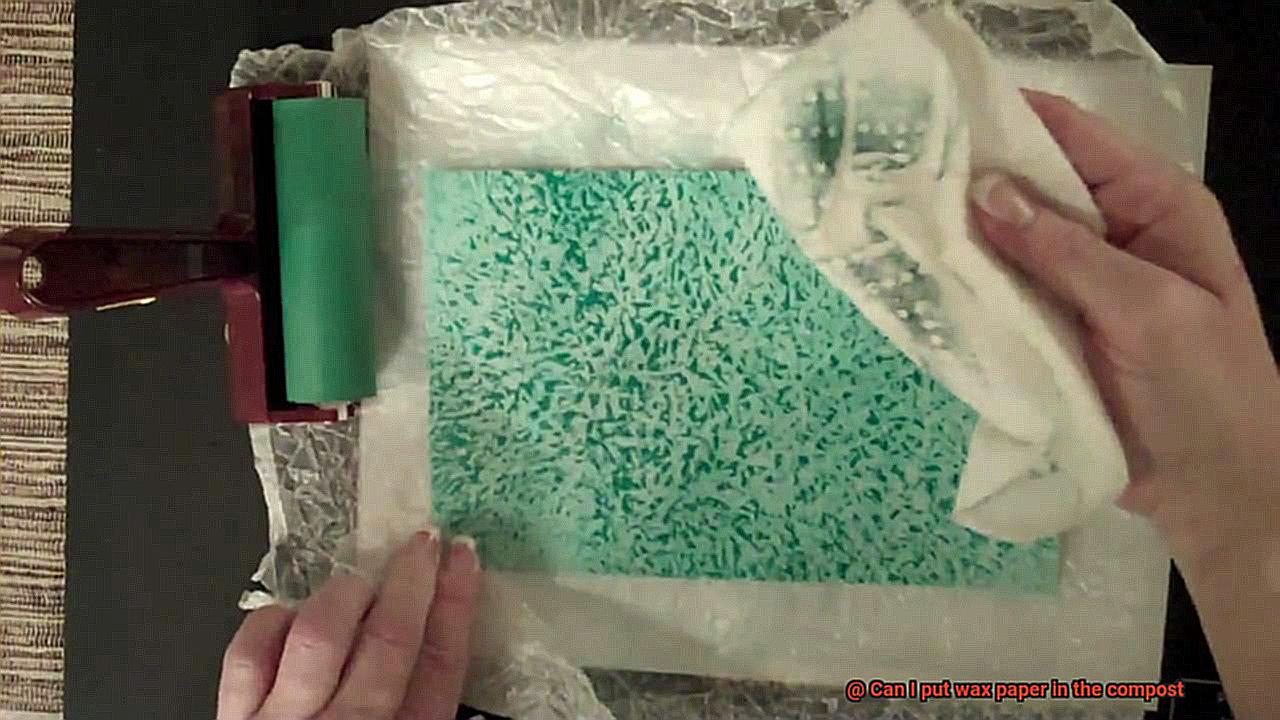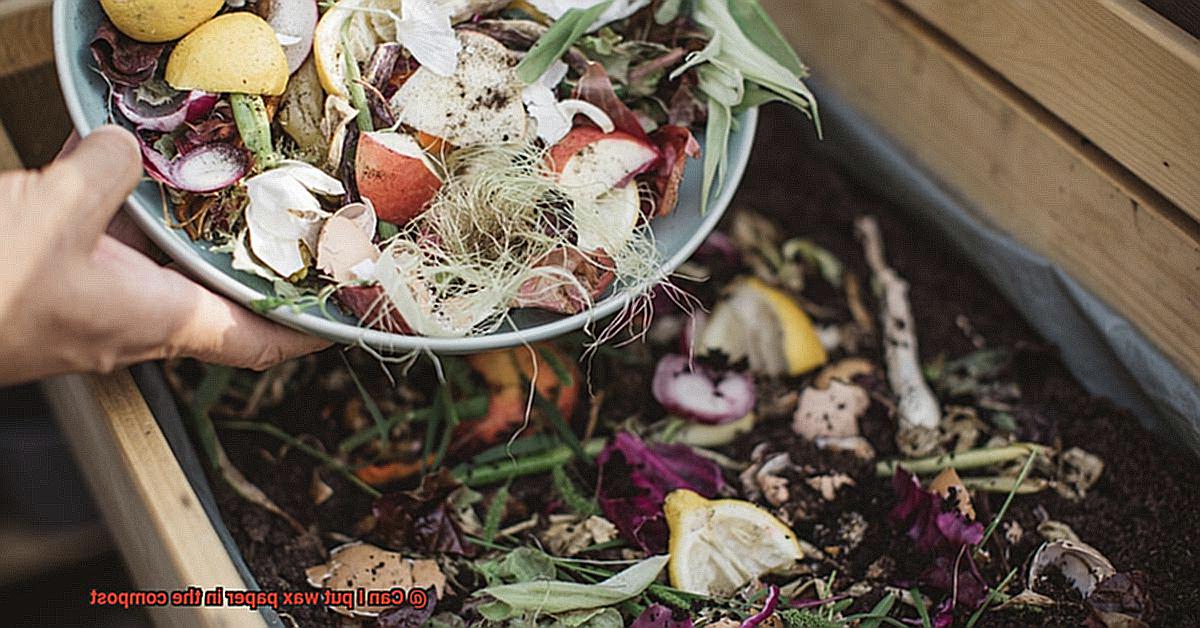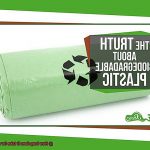Composting is a magical process that transforms your kitchen scraps and yard waste into nutrient-rich soil. It’s no wonder that more and more people are jumping on the composting bandwagon to reduce their environmental footprint. But what about wax paper? Can it be tossed in the compost bin alongside your banana peels and coffee grounds?
If you’ve found yourself pondering this question, fear not. We’re here to shed some light on the topic. The answer isn’t as straightforward as you might think, and it all depends on the type of wax paper you have.
In this blog post, we’ll dive deep into the world of wax paper compostability. We’ll explore the benefits of adding wax paper to your compost pile, as well as potential dangers that could harm your precious soil. You’ll also discover eco-friendly alternatives to traditional wax paper that are safe for composting.
So put on your gardening gloves and let’s dig into this age-old question: Can I put wax paper in the compost?
What is Wax Paper?
Contents
If so, you may be wondering what exactly it is and how it differs from parchment paper. Well, wonder no more.
Wax paper is a type of paper that has been coated with wax on both sides. This coating makes the paper resistant to moisture, grease, and other substances, making it perfect for wrapping food items or keeping them fresh. On the other hand, parchment paper is made from vegetable pulp treated with sulfuric acid to make it non-stick and heat-resistant. It’s often used as a substitute for wax paper in baking.
But not all wax papers are created equal, and it’s important to choose the right one for your needs. Some wax papers are treated with chemicals or have a plastic coating, making them unsuitable for composting or environmentally friendly disposal. However, unbleached wax paper is biodegradable and can break down naturally over time. The speed of decomposition depends on factors such as temperature, moisture, and the size of the paper.
If you’re looking to reduce your carbon footprint and protect the environment, there are also eco-friendly options available. Natural wax papers made from soybean wax or beeswax are biodegradable and sustainable alternatives that won’t harm the environment when disposed of properly.
Is Wax Paper Compostable?
Wax paper is a staple in many households, but when it comes to composting, there’s a lot of confusion around whether or not it’s compostable. The answer is simple: it depends on the type of wax paper you have.
Paraffin wax-coated paper, commonly used in baking and cooking, is not compostable. This type of wax paper is not biodegradable and can take an eternity to break down when added to your compost pile. Worse yet, it can harm your compost pile by obstructing oxygen and slowing down the decomposition process. So, it’s best to avoid adding paraffin wax-coated paper to your compost.
On the other hand, natural wax paper made with soybean wax or other natural waxes is an excellent choice for composting. This type of wax paper is biodegradable and can be safely added to your compost pile. Not only does it break down quickly, but it also adds carbon to the pile, which helps balance the nitrogen-rich greens.

It’s important to keep in mind that not all natural wax papers are created equal. Some may contain non-biodegradable coatings or additives that render them unsuitable for composting. Therefore, it’s crucial to ensure that your wax paper is labeled as compostable or made from natural materials like soybean wax.
Benefits of Composting Wax Paper
Composting it might just be the answer you’re looking for. Not only does composting wax paper help reduce waste, but it also provides nutrients, saves money, and is incredibly easy to do. Here are four benefits of composting wax paper:
Reduces Waste
Wax paper is not recyclable, so composting it is a great way to keep it out of the landfill and turn it into nutrient-rich soil. By composting wax paper, you can reduce the amount of waste that ends up in landfills and do your part in protecting the environment.
Provides Nutrients
Wax paper is made from natural materials like wood pulp and beeswax, which can provide valuable nutrients for your plants as they break down in the compost pile. Composting wax paper with other organic materials can create a rich soil amendment that can be used to fertilize plants and improve soil quality. Imagine having a natural fertilizer for your garden that helps both your plants and the environment.
Saves Money
Composting wax paper can save you money on garbage disposal fees. Since wax paper cannot be recycled, it often ends up in the trash and contributes to the amount of waste that needs to be disposed of. By composting wax paper instead, you can reduce the amount of trash you produce and potentially save money on garbage collection fees.
Easy to Compost
Composting wax paper is easy and convenient. Simply tear or shred the wax paper into smaller pieces and add it to your compost bin along with other organic materials like food scraps and yard waste. The wax paper will break down over time and add valuable nutrients to your compost pile.
Factors that Affect the Decomposition of Wax Paper
Wax paper is a versatile material that many of us use daily. It’s great for wrapping food, lining baking sheets, and keeping frozen goods separated. However, if disposed of improperly, wax paper can have a significant impact on the environment. Let’s explore the factors that affect the decomposition of wax paper.
Firstly, the type of wax used to coat the paper is critical. Natural waxes like beeswax or soy wax are much more biodegradable than synthetic waxes like paraffin wax. This is because natural waxes are made from organic materials that break down much more quickly in the environment.
The thickness of the wax coating also plays a significant role in how long it takes for wax paper to decompose. The thicker the coating, the longer it takes for the paper to break down. This is because there is more material to break down, and fewer microorganisms in the soil can access it.
Temperature and moisture levels are two other essential factors that affect the decomposition process. Higher temperatures and moisture levels can speed up decomposition. However, if the compost pile becomes too hot or too wet, it can kill off beneficial microorganisms that help break down organic materials.
Lastly, adding large amounts of wax paper to a compost pile can lead to a buildup of methane gas. This gas is harmful to both people and the environment. Therefore, it’s recommended only to add small amounts of wax paper to a compost pile and ensure it’s well mixed with other organic materials.
Types of Wax Paper That Can and Cannot be Composted
It’s crucial to identify the type of wax paper before composting it. There are two types of wax paper to consider: coated and uncoated.
Uncoated wax paper, crafted using pure paraffin wax, is compostable and won’t harm the environment. Pure paraffin wax is a natural substance that decomposes rapidly in the compost pile.
Conversely, coated wax paper cannot be composted since it contains polyethylene coating that doesn’t biodegrade. Polyethylene is a synthetic material that remains in the compost pile indefinitely and damages the environment.
To determine whether your wax paper is coated or uncoated, look for information on the package or label. If the packaging doesn’t specify which type it is, you can perform a straightforward test by rubbing the surface with your finger. Uncoated wax paper will leave no residue and decompose easily, while coated wax paper will leave a residue on your finger.
Conclusion
To wrap up, the question of whether or not you can compost wax paper is a bit more complex than you might think. The key factor to consider is the type of wax used in your paper. While paraffin-coated paper won’t break down and can harm your compost pile, natural wax paper made with soybean or other natural waxes is an excellent choice for composting.
Composting your wax paper has many advantages, including reducing waste, providing valuable nutrients to your plants, saving money on garbage disposal fees, and being a breeze to do. Just be sure to choose compostable or naturally-made wax papers that are clearly labeled as such.
The breakdown of wax paper depends on several factors, such as the type of wax used, thickness of the coating, temperature and moisture levels, and how much you add to your compost pile. Keep in mind that coated wax paper cannot be composted since it contains non-biodegradable materials like polyethylene.
In summary, if you’re looking to minimize your environmental impact and transform your kitchen scraps into nutrient-rich soil through composting, make sure you select natural wax papers that are biodegradable and safe for composting.





